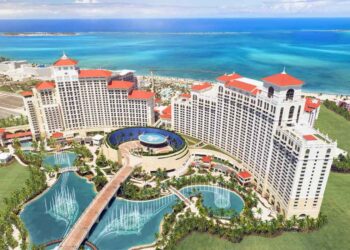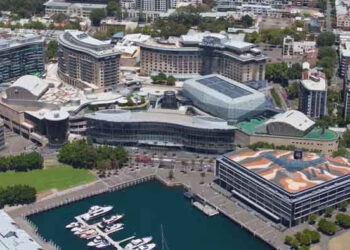Japan’s casino legalization bill will not include a provision barring Japanese nationals.
The controversial ban was reported in Japanese media last week as a done deal to ensure support for the bill from minority and opposition party lawmakers in the National Diet, which is expected to debate and pass the bill in the current special session that ends 30th November.
But a source familiar with the negotiations told Reuters otherwise. “We confirmed that we will not exclude Japanese nationals,” he said. “We agreed that we will make a partial change, to address concerns that have been raised, to say that we will take necessary measures.”
One of the changes under consideration is a Singapore-style entrance fee for the country’s 127 million citizens, which could wind up as part of legislation introduced in the Diet’s next regular session to deal with licensing, regulation and taxation. That session begins in January.
“We would expect the behind-the-scenes jockeying to continue for the time being,” Union Gaming Research Macau said in a recent client note. “While certain majority party members are seemingly pushing for the passage of the IR promotion law this month, we do not believe they currently have the necessary support of key minority parties.”
Legalization is being pushed by Prime Minister Shinzo Abe and his governing Liberal Democratic Party as an economic development tool for boosting tourism and investment. The bill was introduced last December but failed to come to a vote in the Diet’s regular session that ended in June, in no small part because of concerns about the potential for problem gambling and other adverse social impacts. Casinos remain a socially and politically sensitive issue in Japan, and lukewarm support for the bill from Buddhist-backed Komeito, the LDP’s coalition partner, has been an obstacle, observers say.
With preparations ramping up for the 2020 Summer Olympics in Tokyo, the city’s new governor, Yoichi Masuzoe, has said casinos are not a priority, and daily newspaper Asahi Shimbun recently published the results of a telephone poll in which 59% of respondents said they oppose legalization. But recent polling conducted by media giant Nikkei shows exactly the opposite result, with nearly 59% in favor.
At the same time, analysts believe casinos in Asia’s second-largest economy could generate upwards of US$15 billion a year in initial annual revenue based on two destination-scale resorts sited in Tokyo and Osaka and a handful of smaller venues in regional markets. The prospects have attracted an A-list of global operators touting investments in the neighborhood of $5 billion or more, which would not be feasible if the industry was restricted to foreign passport holders.
“A foreigners-only concept in Japan would be a non-starter in terms of attracting major international IR developers willing to deploy significant amounts of capital,” Union Gaming analyst Grant Govertsen said.






























